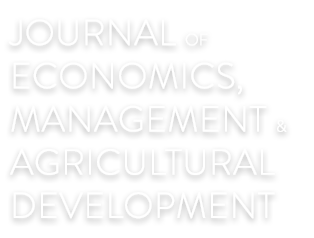Authors
ABSTRACT
The study compares the personal entrepreneurial competency (PEC) levels of BS in Agribusiness Management (BS ABM) students of UP Los Baños (UPLB) with the PEC levels of the BS in Entrepreneurship (BSE) students of De La Salle University-Science and Technology Complex (DLSU-STC). A comparison of the PECs of the two groups can generate insights which can serve as a source of valuable lessons for the design of the curricular revisions of UPLB’s BS ABM program. Demographic information and responses to 55 PEC-related statements were gathered from students of different year levels in the two schools. The data were analyzed using Mann-Whitney U test and ordinal logistic analysis and marginal effect analysis.
Results reveal that that, except for persistence and goal setting, the BSE students have significantly higher mean scores in all the PECs compared with the BS ABM students. The differences in PEC mean scores are more highly significant between the sophomores of the two schools.
The study recommends that the design and sequence of entrepreneurship courses at the Department of Agribusiness Management and Entrepreneurship (DAME) – College of Economics and Management (CEM), UPLB should enable students to experience the whole entrepreneurial process. It should also promote the holding of informal activities which can capture the authenticity of real entrepreneurial situations like business plan competitions and mentoring relationships.

